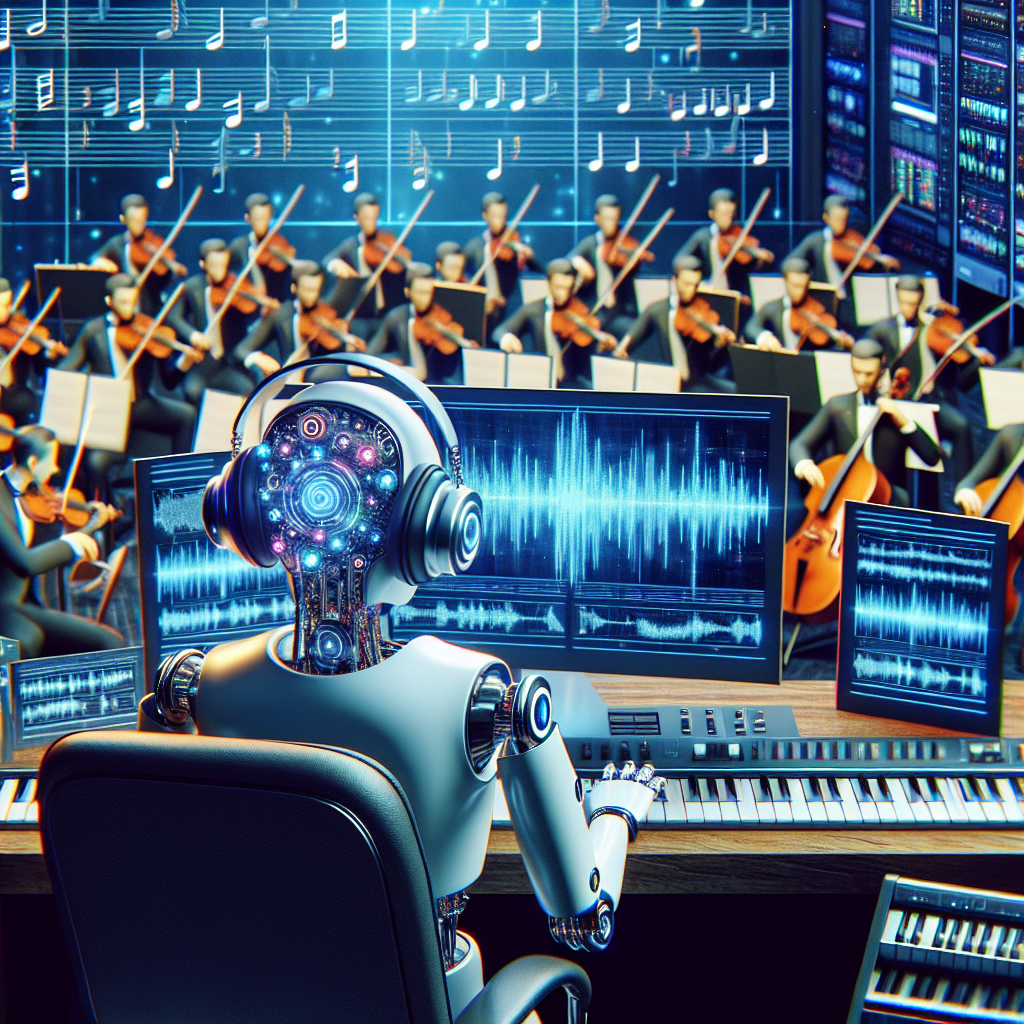As technology continues to advance, the world of music composition is being revolutionized by the use of generative artificial intelligence (AI). Generative AI is a technology that is able to create music autonomously, without the need for human intervention. This has opened up a whole new world of possibilities for musicians and composers, allowing them to explore new sounds and styles that they may not have been able to achieve on their own. In this article, we will explore the benefits of using generative AI in music composition and how it is changing the landscape of music creation.
One of the main benefits of using generative AI in music composition is the ability to quickly generate new ideas and inspiration. Traditional music composition can be a time-consuming process, requiring hours of trial and error to come up with new melodies and harmonies. Generative AI can create music at a much faster pace, allowing composers to experiment with different sounds and styles in a fraction of the time. This can lead to a more efficient and productive creative process, as composers can quickly generate new ideas and build upon them to create unique and innovative compositions.
Another benefit of using generative AI in music composition is the ability to explore new sounds and styles. Generative AI is not limited by human creativity or musical conventions, allowing composers to push the boundaries of traditional music composition. This can lead to the creation of new and innovative music that may not have been possible without the use of generative AI. Composers can experiment with different genres, moods, and instrumentation, allowing them to create music that is truly unique and original.
Generative AI can also be a helpful tool for musicians who may be struggling with writer’s block or creative stagnation. By using generative AI to generate new ideas and inspiration, composers can break out of their creative rut and find new ways to express themselves through music. This can help to reignite their passion for music and reinvigorate their creative process, leading to the creation of fresh and exciting compositions.
In addition to providing new ideas and inspiration, generative AI can also be a valuable tool for collaboration in music composition. Composers can use generative AI to create music sketches or ideas that can be shared with other musicians and collaborators, allowing for a more collaborative and interactive creative process. This can help to bring together musicians from different backgrounds and styles, leading to the creation of music that is truly collaborative and unique.
Generative AI can also be a useful tool for musicians who may not have formal training in music theory or composition. By using generative AI to create music, composers can bypass the need for extensive musical knowledge and experience, allowing them to focus on their creativity and imagination. This can help to level the playing field for aspiring musicians and composers, allowing them to create music that is truly their own, regardless of their background or training.
Overall, the benefits of using generative AI in music composition are vast and varied. From providing new ideas and inspiration to exploring new sounds and styles, generative AI is changing the way music is created and experienced. As technology continues to advance, we can expect to see even more exciting developments in the world of generative AI and music composition.
FAQs
Q: How does generative AI work in music composition?
A: Generative AI uses algorithms and machine learning techniques to analyze and generate music autonomously. These algorithms are trained on large datasets of music to learn patterns and structures, which they can then use to create new compositions.
Q: Can generative AI replace human composers?
A: While generative AI can create music autonomously, it is not meant to replace human composers. Instead, generative AI is meant to be a tool to aid and inspire human composers in their creative process.
Q: Is generative AI only for electronic music?
A: No, generative AI can be used in a wide range of music genres and styles, from classical to pop to jazz. The versatility of generative AI makes it a valuable tool for composers across all genres.
Q: Are there any ethical concerns with using generative AI in music composition?
A: As with any technology, there are ethical concerns to consider when using generative AI in music composition. These concerns may include issues of copyright infringement, ownership of the music created by AI, and the potential for bias in the algorithms used.
Q: How can I get started with using generative AI in my music composition?
A: There are a number of generative AI tools and software available for musicians and composers to use in their music composition. Some popular options include Amper Music, AIVA, and Google Magenta. These tools can help you get started with using generative AI in your music composition and experimentation.

